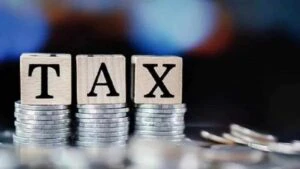The New Income Tax Bill (No. 2) 2025 proposes changes in tax slabs, higher rebates, and updated property rules, aiming to ease compliance and offer relief to salaried individuals and property owners.
The post Income Tax Bill 2025: Changes in slabs, rebates, and property rules appeared first on Newsd.
Income Tax Bill 2025: The Finance Minister Nirmala Sitharaman has brought a new version of the Income Tax (No.2) Amendment Bill, 2025 in the Lok Sabha. This version fixes mistakes and clears confusion that people and the Select Committee had pointed out in the earlier bill.
The changes will affect many taxpayers, like those who own property, those who file under the new regime, and those who get rebates. Once the Parliament passes it, this bill will replace the old Income Tax Act, 1961 and will start from April 1, 2026.
Income tax Rebate
Rebate for income up to ₹5 Lakh (Old Regime): A rebate of 100% of income tax payable, or ₹12,500 (whichever is lower), is available to individuals with total income not exceeding ₹5 lakh.
Rebate under new tax regime (Section 202(I)): If your income is under ₹12 lakh, a rebate of 100% of income tax payable or ₹60,000, whichever is lower, can be claimed.
If your income goes above ₹12 lakh, you can still get some relief under marginal tax rules.
New Tax Slabs
Clause 202(I) of the Income Tax (No. 2) Bill, 2025, brings a simpler tax system for individuals, Hindu Undivided Families (HUFs), and others, making income up to ₹4,00,000 completely tax free.
For income ranging between ₹4,00,001 and ₹8,00,000, a 5% tax rate applies. Income between ₹8,00,001 and ₹12,00,000 is taxed at 10%, while the next slab ₹12,00,001 to ₹16,00,000 is subject to a 15% tax, Upstox reported.
For income between ₹16,00,001 and ₹20,00,000, the rate increases to 20%, and further rises to 25% for income from ₹20,00,001 to ₹24,00,000. Any income above ₹24,00,000 is taxed at the highest rate of 30% under this new regime.
Rules On House Property
Clause 20 clarifies how property income is taxed. If you own a building or land and earn from it, that income will be counted as “Income from House Property.”
But if you use it for your own business or profession, it will not be taxed here but as business income.
Annual Value
For annual value, it will be whichever is higher the rent you actually get or the rent it can reasonably get. Taxes you pay to local authorities can be cut from this. Unrealised rent will not be counted.
If you have an unsold property that’s your stock-in-trade, it will have zero value for two years after getting the completion certificate. For self-occupied homes or those you can’t stay in for valid reasons, the value will be zero for up to two houses.
Tax Year Definition and Other Changes
The bill says a tax year will be the financial year starting on April 1. If a new business or source of income starts during the year, then the tax year for it will start from that date and end on March 31.
The Select Committee said these changes are very important to make the law easy to understand and avoid mistakes. On Friday, the Finance Minister withdrew the first version of the bill during the Monsoon Session and replaced it with this revised one.
